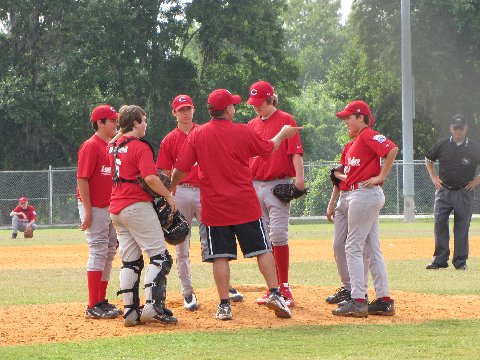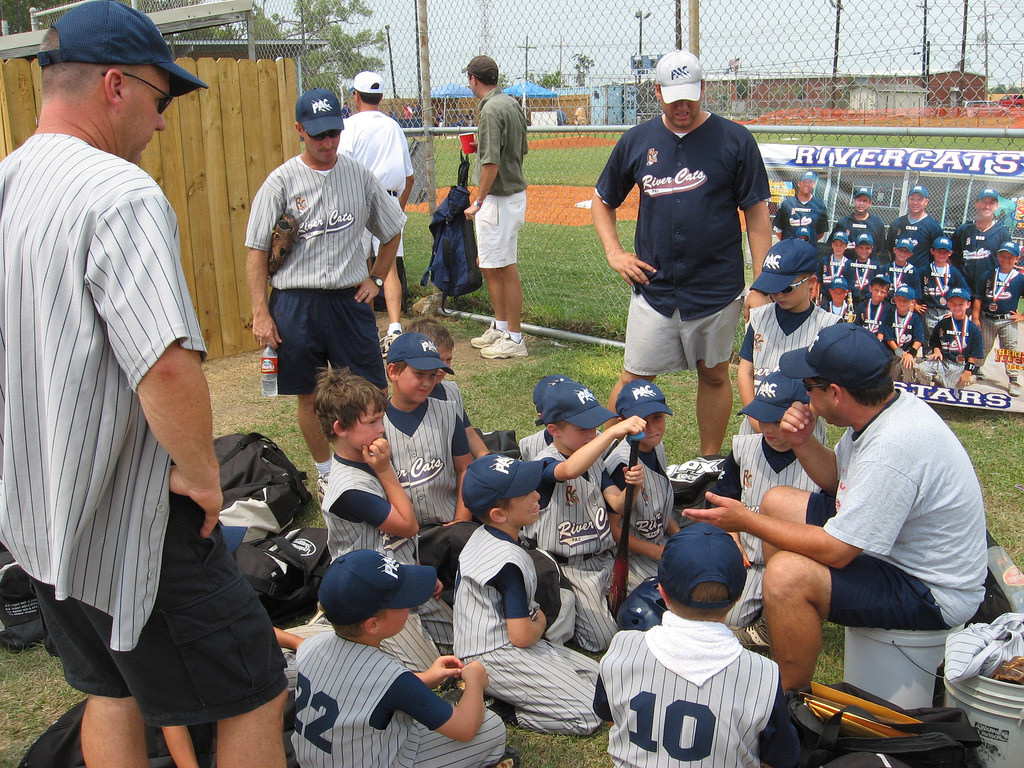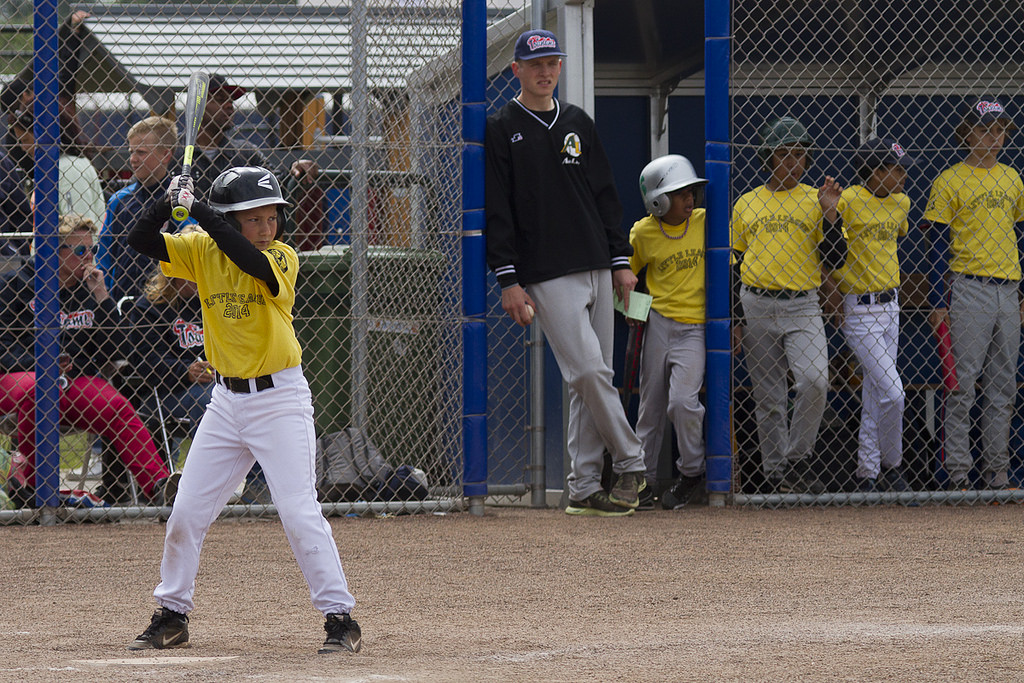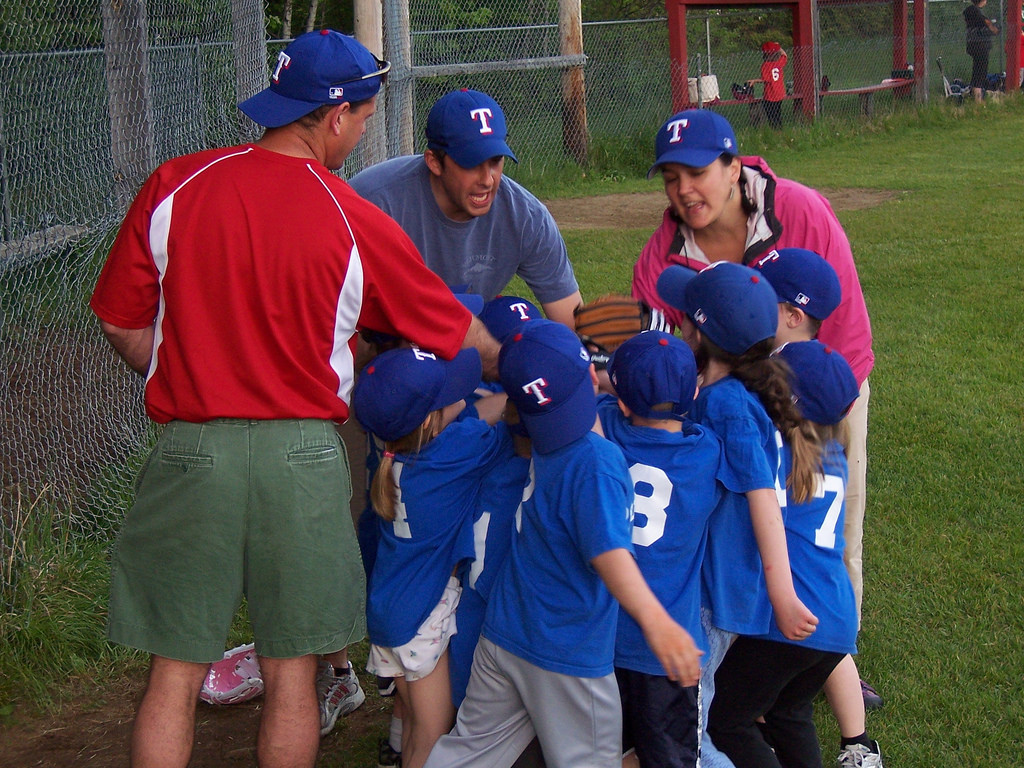
Guest post by veteran coach Scott Allen
Baseball has been the soundtrack to my life for as long as I can remember. The sounds of the game floated through my Grandmother’s house on a transistor radio. You could hear the sounds of a neighborhood game being played in the streets. Practices and games were their own symphonies. My coaches were meaningful figures in my life and my friendships generally started on the field. Parents of other players became part of the community that helped raise me. I was so very lucky to have all of this.
When I began coaching I realized quickly the game of baseball had changed at the youth level. I barely recognized it and very nearly walked away from it in disgust. It was not the game taking place on the field that had changed; it was the game being played by the adults that surrounded it that morphed into something foul. Some of the coaches I met were not the caliber of people that should have influence on young ball players. They had little capability to develop players and lacked the work ethic it would require to even try. Some of the families I met had no concept of the magic associated with seeing their sons and their friends develop into a team. The culture surrounding youth baseball had become very selfish and ugly.

I think it was the values that this game had instilled in me so long ago that made me dig in with the determination to grind against what I was seeing.
The culture that surrounds a program is so very important. Lifetime friendships can be formed within the framework of youth baseball. You could count yourself very fortunate if you looked at a pitcher of your player’s team twenty years from now and see the faces of kids that he graduated with. Maybe you will see the young face of the best man at his wedding…or his business partner. All of this starts with the tone set by the coach of the program but none of it can be sustained without a strong sense of baseball family.
As a coach, I have a few guiding principles for the program I run. They include:
- Run a program nobody wants to leave and everybody wants to join.
- Pick the family first and the player second. Athleticism and skill are certainly part of the equation. They always are. But if you have a choice between a supremely talented player with crazy parents and a raw talent with parents that are high caliber people; pick the raw talent and get to work. The dividends of that decision will materialize at just the right moment and you will be rewarded many times over. Crazy isn’t cool when it marches into your life three to four times a week for six to eight months of the year.
- Parents are required to be their player’s biggest fans and every other player’s second biggest fans.
- Trust our process and understand that we want the best for each player in the team construct. We will put them in the position to succeed. We will put them in a position to fail. That is what they will encounter in life and they will grow both on and off the field to embrace the challenges life will throw at them.
A coach provides a drum beat for their program. That rhythm is important and has to be the tone the player families have to hear all of the time. Be fair, honest, and demonstrate the character required for the position you hold. Your role in the lives of your players is something that if done right, will serve as an example for decades and often long after you have gone. Be a strong example of leadership for them to follow.
Confident and capable coaches view the concerns of parents and players as teachable moments. The job of a coach is to develop strong young men/women while advancing their athletic skills. Establishing that with a rule set that supports it properly can make all the difference in the world.

Here are a few family policies that have worked for me and may also work to your advantage:
- Be open. Understand that players and parents will have opinions and concerns. Let them know that you are willing to discuss them in a player/parent/coach conversation. Be the adult in these conversations at all times.
- Statistics are widely available these days. Data has changed the game and everybody thinks they are a Money ball expert. I intentionally limit access to player statistics. A family can only see their player’s statistics. A player family should only be concerned with the development of their player.
- Hold player assessment meetings on a regular schedule. One in the off season serves as a baseline to identify improvement areas. A mid-season evaluation offers a glimpse at the progress being made. An end of season assessment wraps things up and sets the pace for the following year.
- Once a player reaches about 12 years of age, begin to treat them like the young adults that they are becoming. If they have a concern, let them raise it to you in front of their parents. Address the player with as much fact as possible. Be pragmatic and kind. Be supportive. Build the player up to their potential by recognizing how close they are to their goals. If they are not close…be honest in a way that inspires them to achieve.
- Use practice to show that you are giving the player the opportunity to pursue their immediate goal and showcase their improvement. Be very intentional about this. It is okay to let the whole team know the player is goal orientated. If handled properly it will inspire other players that are physically gifted but short on work ethic to get busy, too. In the end, the team unit will get stronger.
 Use game situations to your advantage. Ahead by ten? Shake up the line-up a bit. Down by ten? Shake up the line-up.
Use game situations to your advantage. Ahead by ten? Shake up the line-up a bit. Down by ten? Shake up the line-up.- Schedule friendly games. Use these to develop the back end of your pitching depth and positional diversity. Tell the parents what a win looks like. A win does not have to be defined only by the scoreboard. A win can be the sixth player in the pitching rotation throwing 4 innings of 1 run ball. A win can be the third string first baseman handling an entire game error free. A win can be whatever you define it to be. If your parents understand the plan it will be easier for them to line up and support you.
- Manage the parents too. If they get out of hand…step in and manage it properly. If they are disrespectful or confrontational…handle that too. If they are not contributing to the team with behavioral characteristics that you want associated with your program…no matter how good the player is…be strong enough to do the right thing. On the extreme end of the scale this may include outright dismissal from the team. This too should be handled in a player/parent/coach format. If the player understands that his life was impacted by the fact that his parent can’t be an adult…it will shape him as a person the right way.
- Manage the parents II. Players have a lot of stress to deal with. One thing that makes it worse is hearing 5 people at once tell him what he is doing wrong or what he has to do better. We use a “Performance Statement” approach. The player tells us what he wants to hear as he is stepping into the box or toeing the rubber. It is his statement. It is short. It is something that they have selected that will give them the energy they need to succeed. We write these down for our parents on a cue card. When the player is in a tense moment…all of the parents will encourage him using that specific performance statement. This reinforces that the entire parent community of the team is behind him and wants him to succeed. It gives him confidence rooted in love. Try it…it works!
The players are generally the easy part of the equation for a Head Coach to manage. It is a very rewarding experience to witness young athletes begin to hold themselves accountable to a team orientated covenant. We insist that our players understand our expectations for them. They include:

- Embrace the grind and enjoy the work. Have fun training harder and smarter than everybody you see around you. Winning takes work and you have to be able to outwork your opponent.
- Be a warrior…and have fun.
- Be smart…and have fun.
- Be committed…and have fun.
- Be accountable to yourself and the team…and have fun.
- Be supportive of your teammates…and have fun.
- Have fun!!!
We have won plenty of games and tournaments. Winning is certainly fun but it is simply a byproduct of what we are really trying to accomplish. We are trying to develop the character and leadership qualities of our players. They are good young men that will become great men in their own right. Being successful at this is the rhythm of our program.
I can’t wait to meet all of them 20 years from now!
If you enjoyed this article, you might enjoy “Thank a Coach Today”









